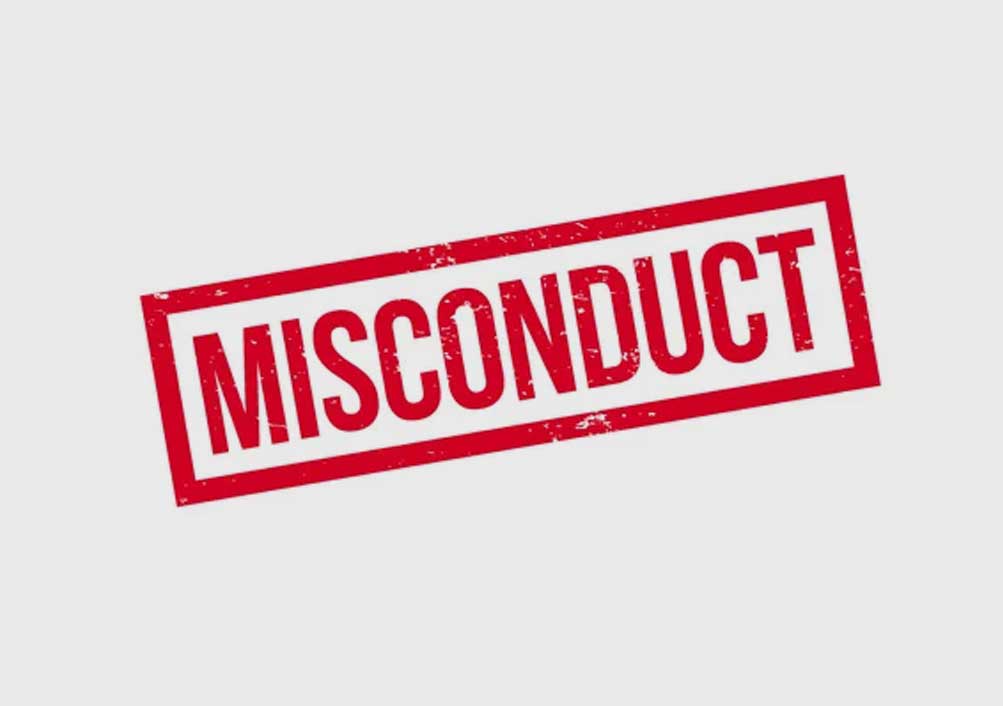Restoring delinquent employee’s compulsory retirement Order, Top Court clarifies that acquittal of accused in criminal case does not debar employer from conducting departmental proceedings

Read Judgment: State of Karnataka & Anr V. Umesh
Pankaj Bajpai
New Delhi, March 23, 2022: While considering a case where the Karnataka Administrative Tribunal, having exercised the power of judicial review, found no reason to interfere with the award of punishment of compulsory retirement and the Division Bench of the High Court exceeded its jurisdiction under Article 226 of the Constitution and trenched upon a domain which fell within the disciplinary jurisdiction of the employer, the Supreme Court has clarified that acquittal of the accused in a criminal case does not debar the employer from proceeding in the exercise of disciplinary jurisdiction.
A Division Bench of Justice Dr. D.Y Chandrachud and Justice Surya Kant observed that in the exercise of judicial review, the Court does not act as an appellate forum over the findings of the disciplinary authority, and hence, does not re-appreciate the evidence on the basis of which the finding of misconduct has been arrived at in the course of a disciplinary enquiry.
Going by the background of the case, Umesh (respondent) working as a Village Accountant, was charged for demanding a bribe for deleting the name of a person from Column No. 11 of the RTC with regard to land situated at Shirdona Village. Accordingly, a criminal complaint was registered with the Lokayukta police against the respondent for the commission of an offence punishable u/s 7 and 13(1)(d) r/w/s 13(2) of the Prevention of Corruption Act, 1988.
During the course of the trial, the Special Judge gave the benefit of doubt to the respondent and acquitted him of all charges. Later, a disciplinary enquiry was initiated u/s 7(2) of the Karnataka Lokayukta Act 1984. Taking note of the complaint, and the fact that the phenolphthalein powdered currency notes were seized from the respondent, the Karnataka Upa Lokayukta-1 held that a prima facie case was established. By an order exercising powers u/s 12(3) of the Karnataka Lokayukta Act 1984 and Rule 14-A of the Karnataka Civil Services (Classification, Control and Appeal) Rules 1957, the Upa-Lokayukta-1 recommended the initiation of disciplinary proceedings against the respondent.
Later, the Government of Karnataka entrusted the case to the Upa-Lokayukta for enquiry under Rule 14 (A) of 1957 Rules, and accordingly, the Upa-Lokayukta nominated the Additional Registrar of Enquiries in the Karnataka Lokayukta as the inquiry officer for framing the charge and conducting the inquiry. By an Order, the Lokayukta held that the charge against the respondent was proved and recommended the penalty of compulsory retirement from service under Rule 8(vi) of the 1957 Rules.
Thereafter, the disciplinary authority issued a show cause notice to the respondent, who contended in his reply that the money seized was not received as a bribe but was for repayment of a loan borrowed by the brother-in-law of the complainant. The respondent also contended that since the Special Judge acquitted him on the same set of facts and evidence, there was no ground for him to hold him guilty of misconduct in the disciplinary proceedings. The disciplinary authority however, held that the misconduct was proved and imposed a penalty of compulsory retirement.
Aggrieved by the penalty, the respondent moved the Karnataka Administrative Tribunal, which upheld the order of compulsory retirement. On appeal, the High Court set aside the judgment of the Karnataka Administrative Tribunal directing the compulsory retirement of the respondent from service following a disciplinary enquiry on charges of bribery.
After considering the submissions, the Apex Court found that principles which govern a disciplinary enquiry are distinct from those which apply to a criminal trial, as in a prosecution for an offence punishable under the criminal law, the burden lies on the prosecution to establish the ingredients of the offence beyond reasonable doubt and the accused is entitled to a presumption of innocence.
The purpose of a disciplinary proceeding by an employer is to enquire into an allegation of misconduct by an employee which results in a violation of the service rules governing the relationship of employment, and unlike a criminal prosecution where the charge has to be established beyond reasonable doubt, in a disciplinary proceeding, a charge of misconduct has to be established on a preponderance of probabilities, added the Court.
Speaking for the Bench, Justice Chandrachud reiterated that the Court in the exercise of judicial review must restrict its review to determine if the rules of natural justice have been complied with, the finding of misconduct is based on some evidence, the statutory rules governing the conduct of the disciplinary enquiry have been observed, the findings of the disciplinary authority suffer from perversity and the penalty is disproportionate to the proven misconduct.
The enquiry was conducted in accordance with the principles of natural justice and therefore, the acquittal of the respondent in the course of the criminal trial did not impinge upon the authority of the disciplinary authority or the finding of misconduct in the disciplinary proceeding, concluded the Bench.
Accordingly, the Apex Court set aside the judgment of the High Court and restored the finding of misconduct and the punishment of compulsory retirement.
Sign up for our weekly newsletter to stay up to date on our product, events featured blog, special offer and all of the exciting things that take place here at Legitquest.




Add a Comment